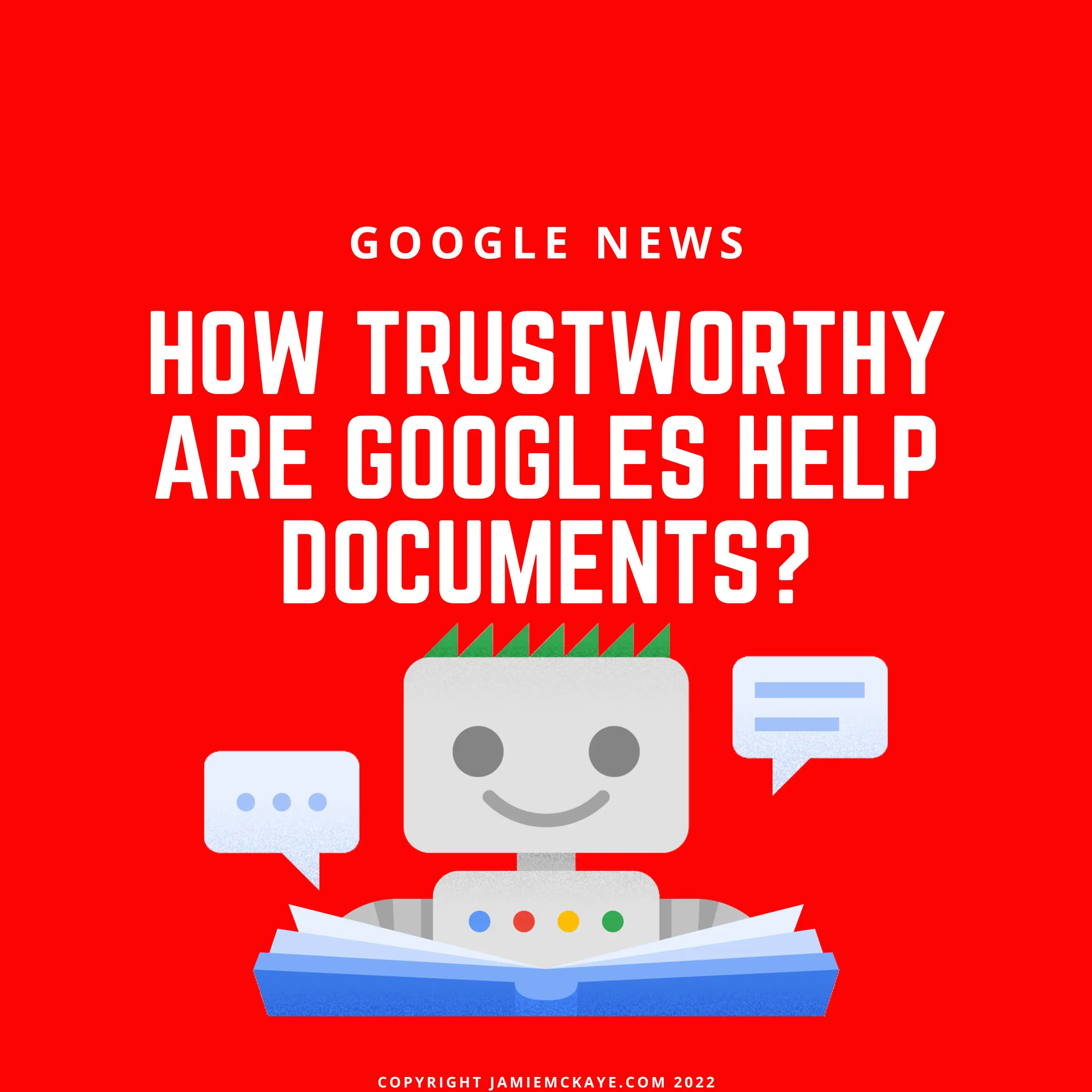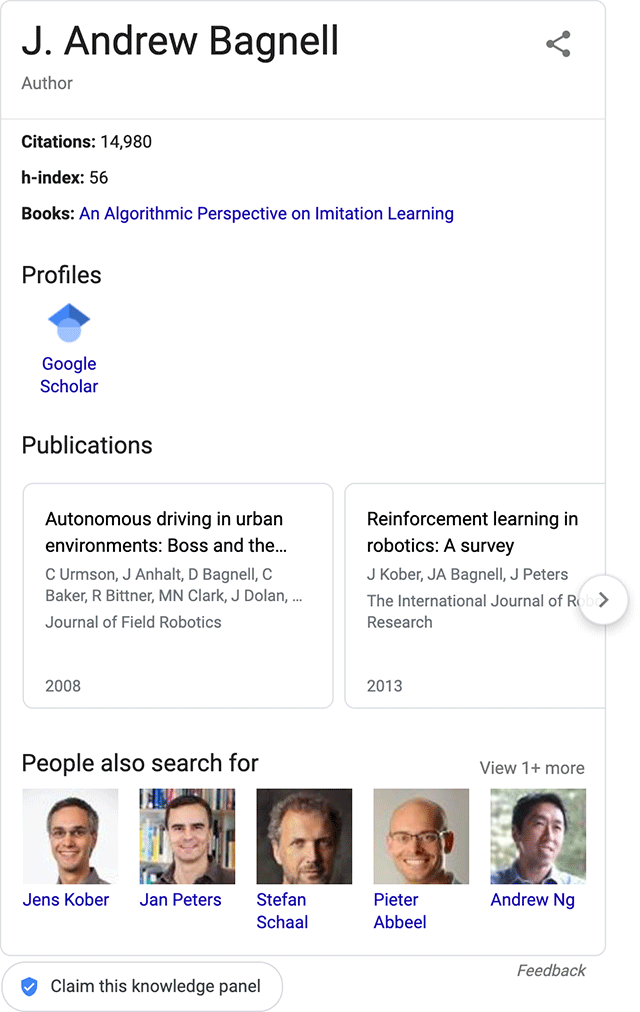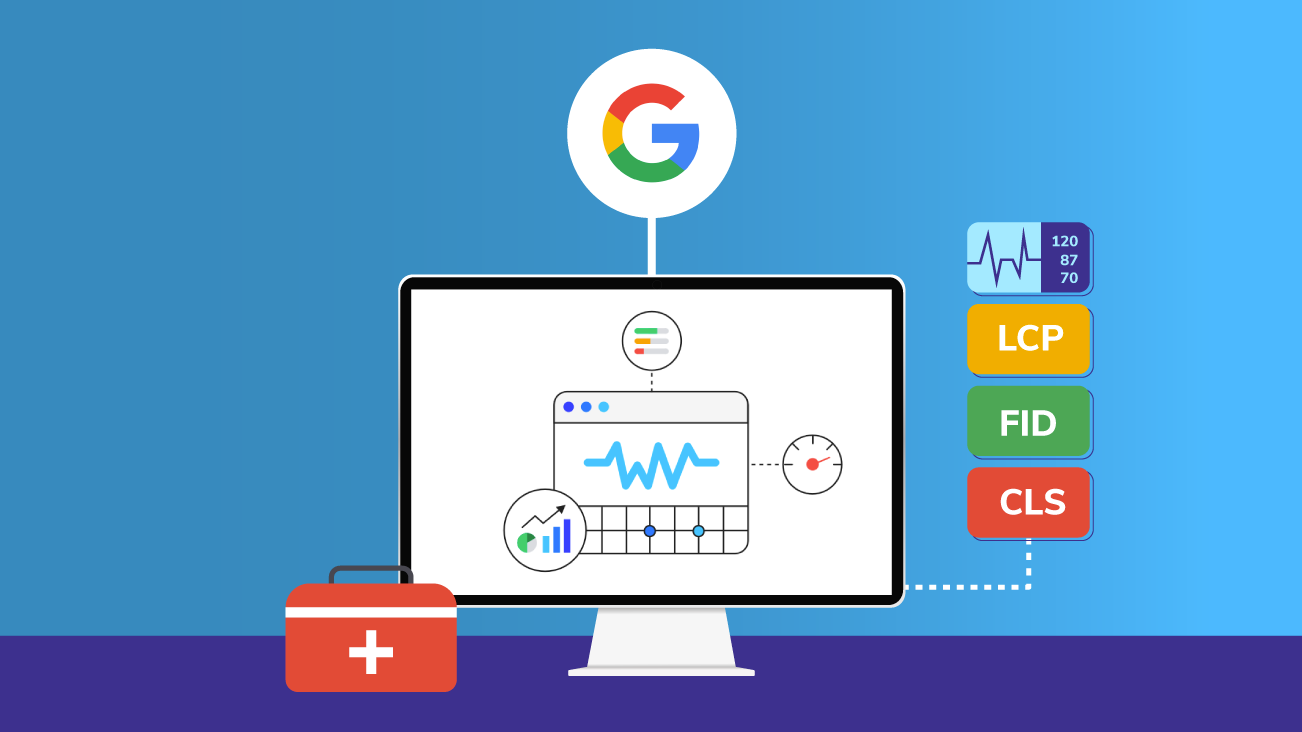How Trustworthy are Google’s Help Documents?

Despite undoubtedly good intentions, Google’s published documentation aimed at providing help and advice may not always as be as trustworthy as many people would like to believe.
In a world where up to date information is vital, Google risk providing recommendations that are slightly out of date at best and at worst; completely obsolete...
Bu why does that happen?
It is unusual for any company to recommend undertaking your own research on best practices and admitting their own help documents aren’t always as up to date as they should be.
But surprisingly, that is what Google has recently done.
This episode of Google’s SEO and Devs web series over on YouTube tackles the issue head on and explores it in depth.
Can Google’s Official Help Documents Be Trusted?
For SEOs, the search giant’s official documents are a touchstone, a vital tool in providing recommendations to developers.
Martin Splitt, of Google’s Dev Relations team and Mike King, founder of iPullRank, got together in the latest episode from Google Search Central to look a little closer at this issue and how it can erode the trust between developers and SEO specialists.
Google for their part, always aim to keep their content accurate and trustworthy, however there is lag at times; between what is actually working in SEO and what might no longer be relevant.
Does Google Get It Wrong?
Cast your minds back to 2019 when Google revealed they had ceased supporting rel=”next” and rel=”prev”, this hadn’t happened that week, or even the month before but years prior to the admission.
That admission never came in the form of an announcement, Google simply removed the documentation relating to rel=”next” and rel=”prev”.
The closest we came to an announcement was when Google’s John Mueller was asked the question about it directly via Twitter.
Of course, during that intervening time SEOs were busy telling developers to use that particular piece of code, for no reason at all... Some may have noticed Google’s ability to understand pagination perfectly without its use but many didn’t.
They simply relied on official documentation and that is not always the best way to learn how Google Search really works.
Why Isn’t Official Documentation Always Up To Date?
Things change quickly in the world of Google Search; even Google advises caution to anyone looking at their help documents as a sole source of information.
Martin Spiltt had this to say around the infamous rel=”next” and rel=”prev” affair:
“The docs are not always in phase. We’re doing our best to work with the teams and help them to keep their documentation updated, but it does every now and then happen in this case like a bunch of engineers in search quality figured out — ‘hey, hold on, we actually don’t really need the rel-next and rel-prev links anymore to figure out that there’s like a pagination going on. We can figure that out from other things on the page by themselves.'”
So... it was discovered that the code was no longer needed and support for it (in the form of help documents) was also removed.
There is a distinct decision-making process at work here, as Splitt goes on to admit:
“… What do you do? Do you either update the docs to just quietly remove that part because it no longer is relevant?
Or do you go like ‘Hey, by the way, this is no longer necessary. And truthfully speaking it hasn’t been necessary in the last six months.’
Knowing very well that people are reading the documentation, making recommendations based on it to other people, and then these people then invest work and time and money into making that happen.”
So according to Splitt, the choices were:
Come clean about the code being obsolete or keep the documents available, knowing they were no longer necessary...
“And the alternative would be to let it live there in the documentation, even though it’s wrong it doesn’t hurt.
So we went with the full frontal way of going like — ‘Okay, here’s the thing. This has been removed a while ago and we’re sorry about that, but now our docs are updated.’
And I think none of the choices are easy or necessarily perfectly good, but it’s just what happens. So I think we’re trying to keep the docs updated as much as possible.”
Who to trust..?
The simple answer is trust yourself.
If you learn one lesson from the story behind rel=”next” and rel=”prev” and the reasons why Google handled the situation they way it did, it should be this.
Testing and undertaking your own research is important, in some cases it might even be more reliable than Google’s own help documents. If you suspect that something is no longer necessary, despite the company’s recommendations.
You might just be right...





Comments